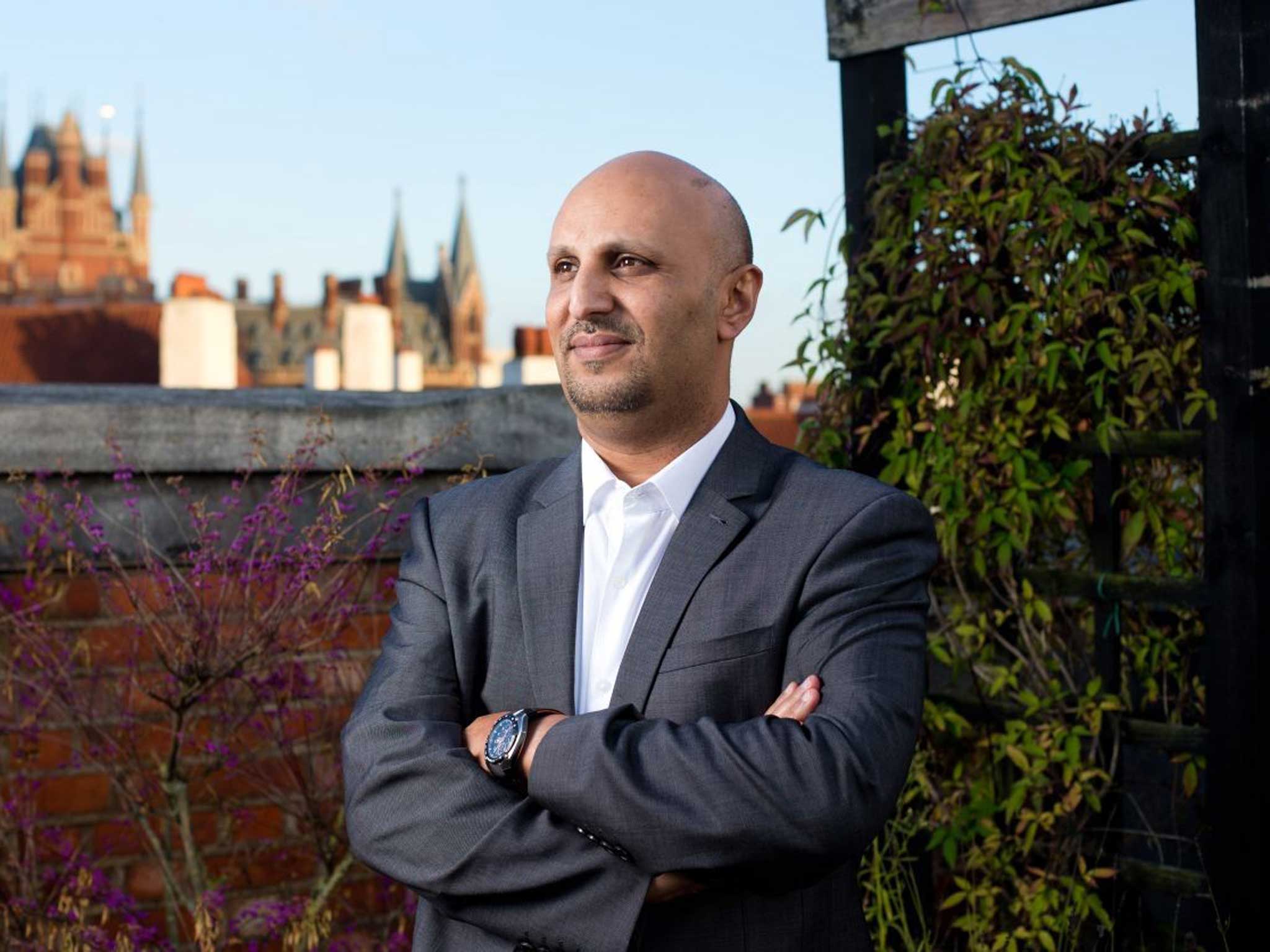DEC chief Saleh Saeed and Typhoon Haiyan: The man who makes us give generously...
He tells Oliver Poole how he swung charities into action to raise £57m so far after the Philippines typhoon

It was on a Sunday morning two weeks ago, at home in West Bromwich watching television, that Saleh Saeed began to realise how devastating was the typhoon that had just struck the Philippines.
He had feared as much. His team at the Disasters and Emergencies Committee had spent the past few days tracking the storm’s progress as it grew bigger. The previous afternoon was spent on the phone to the heads of Britain’s leading charities and broadcasters sharing what information they had.
But it was the television footage showing flattened towns that confirmed the true extent of the catastrophe. “I went upstairs and locked myself in my office,” he recalls. It is only when the DEC appeal closes a week from tomorrow and the final tally has been counted – it stood at £57m yesterday – that he will have a moment to catch his breath.
That Sunday, he rang round the 14 charities that make up the DEC’s membership, among them Oxfam, Christian Aid, Islamic Relief and Save the Children, and got their commitment to deliver programmes quickly to the worst affected areas. Television stations quickly promised their support.
Only a few hours after he had headed upstairs, the decision was made to establish a nationwide appeal. Two days later, it launched on television. Within 48 hours it had already raised £23m, and by the end of the week some half a million people were being helped by its member charities and their partners.
It was, Mr Saeed admits, an “astonishing” response, one that had the quickest lift-off of any appeal run by the organisation he heads as chief executive since the unprecedented devastation of the tsunami nine years before.
The DEC was established 50 years ago to co-ordinate UK charities’ response to a humanitarian emergency. Back then it really was a committee, one that had no remit to raise funds and was little more than a talking shop for the country’s biggest charities to exchange information and see how they could get help from the armed services.
This century it started to resemble a truly professional organisation, with its own chief executive and staff and, since January last year, a more determined commitment to projecting itself to the public.
Mr Saeed, 46, is only its second chief executive. Born in Yemen, he and his family moved to the Midlands when he was four. He started working in the charitable sector shortly after leaving university, initially as an unpaid volunteer for Islamic Relief. By 2008 he was running the body, responsible for 1,500 staff in 24 countries and overseeing its response to disasters in Gaza, Haiti, Pakistan and East Africa.
He was approached by the DEC last year. The past weeks have been the first big test of what has gone right, and what could have been better, during his time in the post. “What’s important for the DEC is to get the money out quickly with minimum fuss,” he says. “The challenge is to determine how quickly the money will come in. We told the member charities on the Monday [how much money to expect]. At that stage we had £44m, and could forecast the trajectory of what would be likely over the next few weeks.”
Mr Saeed emphasises that charities such as Oxfam and Save the Children already had rough estimates and were spending from their own reserves before then. But six days remains a long time to give firm direction, especially when it is the first few days after a crisis that are most key to saving lives.
What he is most pleased about, however, is the way the groundwork already laid enabled the appeal to become so prominent, not least with high-profile slots on The X Factor and during the England vs Germany game. Each of the main broadcasters has designated staff who liaise with the DEC. Conversations had begun months earlier about appeal pleas being shown outside the traditional post-news bulletin slots.
“We had been discussing running them around entertainment shows. The Philippines happened before those discussions had been completed, but they said yes. It was an important milestone as it showed we could make more money by piggybacking on popular events.”
His 14 staff, even with the aid of 50 volunteers, had at times struggled to cope with the level of response.
“We launched our appeal in the same week as Children in Need on the Friday, and we were really worried it would affect our appeal and theirs,” he said. “We didn’t want to eat into funds for children in the UK, but an emergency is an emergency. When I woke on Sunday, it had raised five million more than it had ever raised before. It shows that if the case is made, then people will give.”
To give to the appeal, visit dec.org.uk
Subscribe to Independent Premium to bookmark this article
Want to bookmark your favourite articles and stories to read or reference later? Start your Independent Premium subscription today.

Join our commenting forum
Join thought-provoking conversations, follow other Independent readers and see their replies